第92章 Chapter XXXIII(3)
Then one afternoon the green door opened, and through came, first Farfrae, and at his heels Lucetta. Donald brought his wife forward without hesitation, it being obvious that he had no suspicion whatever of any antecedents in common between her and the now journeyman hay-trusser.
Henchard did not turn his eyes towards either of the pair, keeping them fixed on the bond he twisted, as if that alone absorbed him. A feeling of delicacy, which ever prompted Farfrae to avoid anything that might seem like triumphing over a fallen rival, led him to keep away from the hay-barn where Henchard and his daughter were working, and to go on to the corn department. Meanwhile Lucetta, never having been informed that Henchard had entered her husband's service, rambled straight on to the barn, where she came suddenly upon Henchard, and gave vent to a little "Oh!" which the happy and busy Donald was too far off to hear. Henchard, with withering humility of demeanour, touched the brim of his hat to her as Whittle and the rest had done, to which she breathed a dead-alive "Good afternoon".
"I beg your pardon, ma'am?" said Henchard, as if he had not heard.
"I said good afternoon," she faltered.
"O yes, good afternoon, ma'am," he replied, touching his hat again.
"I am glad to see you, ma'am." Lucetta looked embarrassed, and Henchard continued: "For we humble workmen here feel it a great honour that a lady should look in and take an interest in us."She glanced at him entreatingly; the sarcasm was too bitter, too unendurable.
"Can you tell me the time, ma'am?" he asked.
"Yes," she said hastily; "half-past four."
"Thank 'ee. An hour and a half longer before we are released from work.
Ah, ma'am, we of the lower classes know nothing of the gay leisure that such as you enjoy!"As soon as she could do so Lucetta left him, nodded and smiled to Elizabeth-Jane, and joined her husband at the other end of the enclosure, where she could be seen leading him away by the outer gates, so as to avoid passing Henchard again. That she had been taken by surprise was obvious. The result of this casual rencounter was that the next morning a note was put into Henchard's hand by the postman.
"Will you," said Lucetta, with as much bitterness as she could put into a small communication, "will you kindly undertake not to speak to me in the biting undertones you used today, if I walk through the yard at any time? I bear you no ill-will, and I am only too glad that you should have employment of my dear husband; but in common fairness treat me as his wife, and do not try to make me wretched by covert sneers. I have committed no crime, and done you no injury.""Poor fool!" said Henchard with fond savagery, holding out the note.
"To know no better than commit herself in writing like this! Why, if Iwere to show that to her dear husband - pooh!" He threw the letter into the fire.
Lucetta took care not to come again among the hay and corn. She would rather have died than run the risk of encountering Henchard at such close quarters a second time. The gulf between them was growing wider every day.
Farfrae was always considerate to his fallen acquaintance; but it was impossible that he should not, by degrees, cease to regard the ex-corn-merchant as more than one of his other workmen. Henchard saw this, and concealed his feelings under a cover of stolidity, fortifying his heart by drinking more freely at the Three Mariners every evening.
Often did Elizabeth-Jane, in her endeavours to prevent his taking other liquor, carry tea to him in a little basket at five o'clock. Arriving one day on this errand she found her stepfather was measuring up clover-seed and rape-seed in the corn-stores on the top floor, and she ascended to him. Each floor had a door opening into the air under a cat-head, from which a chain dangled for hoisting the sacks.
When Elizabeth's head rose through the trap she perceived that the upper door was open, and that her stepfather and Farfrae stood just within it in conversation, Farfrae being nearest the dizzy edge, and Henchard a little way behind. Not to interrupt them she remained on the steps without raising her head any higher. While waiting thus she saw - or fancied she saw, for she had a terror of feeling certain - her stepfather slowly raise his hand to a level behind Farfrae's shoulders, a curious expression taking possession of his face. The young man was quite unconscious of the action, which was so indirect that, if Farfrae had observed it, he might almost have regarded it as an idle outstretching of the arm. But it would have been possible, by a comparatively light touch, to push Farfrae off his balance, and send him head over heels into the air.
Elizabeth felt quite sick at heart on thinking of what this might have meant. As soon as they turned she mechanically took the tea to Henchard, left it, and went away. Reflecting, she endeavoured to assure herself that the movement was an idle eccentricity, and no more. Yet, on the other hand, his subordinate position in an establishment where he once had been master might be acting on him like an irritant poison; and she finally resolved to caution Donald.
HARDY: The Mayor of Casterbridge - * XXXIV *